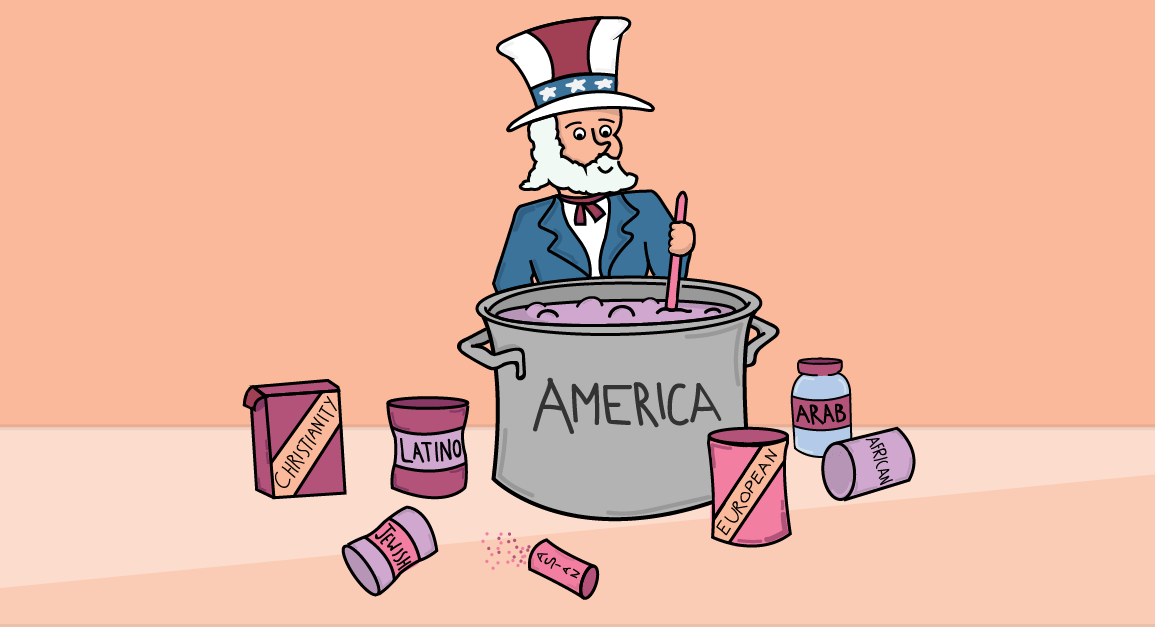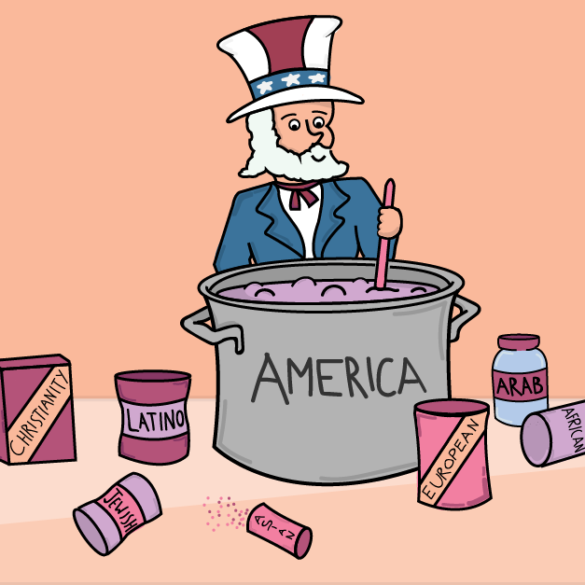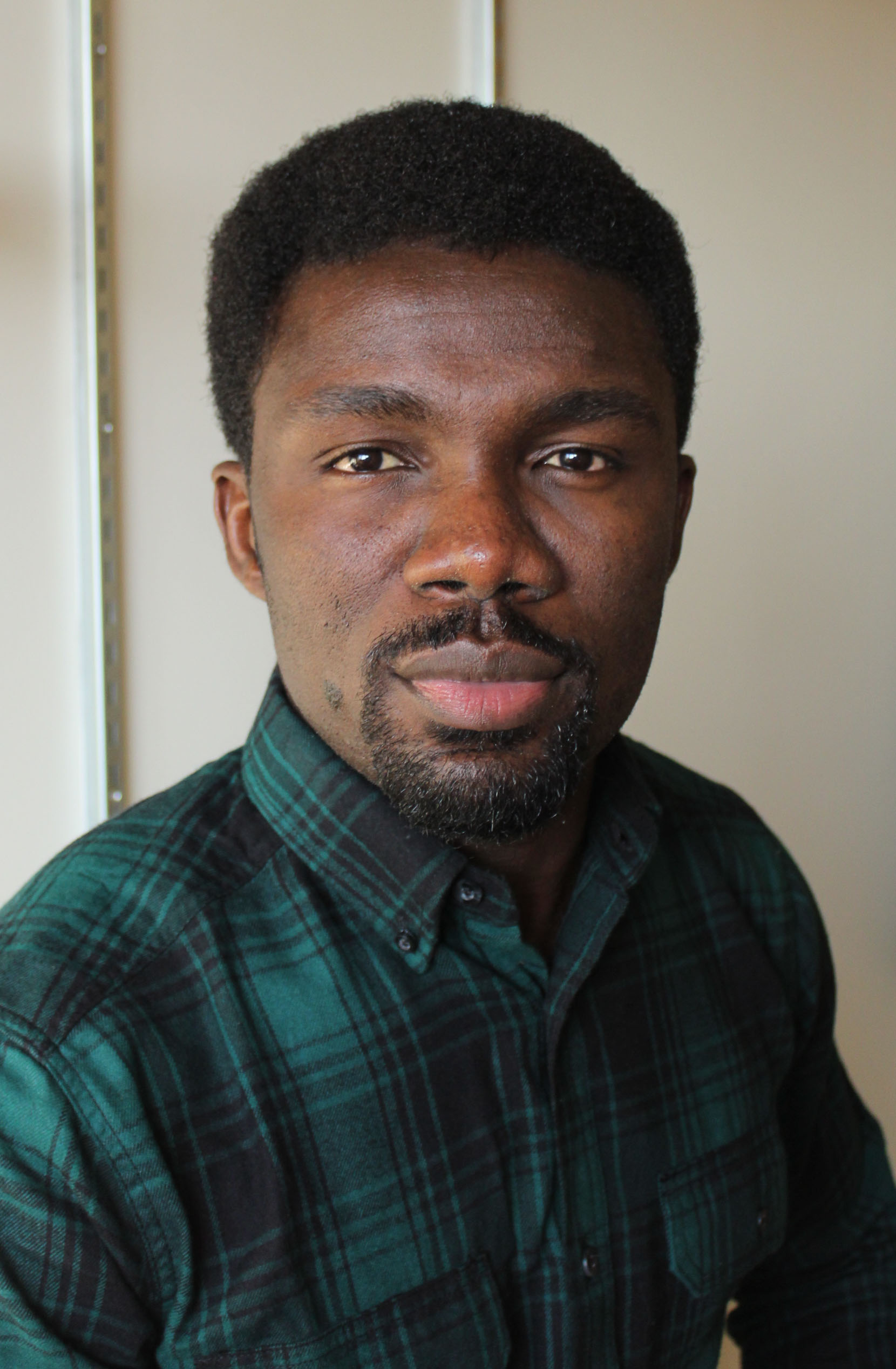Individual heritage is not lost in the mixing of America’s “melting pot.”
As of fall 2017, almost 34 percent of students at Ball State University belong to ethnic minorities. Enrollment of students with diverse backgrounds has increased by at least 2 percent each fall since 2013.
Bobby Steele, director of the Multicultural Center at Ball State University, says heritage is important on a college campus as a way to honor and embrace students’ identities.
Although the United States is commonly referred to as a melting pot, a place where people’s differences are blended, this isn’t always the case. Heritage continues to leave its mark by contributing to a person’s overall makeup, according to several students.
Ball Bearings sat down with these individuals to talk about heritage, sharing cultures, and what that means in a so-called melting pot.
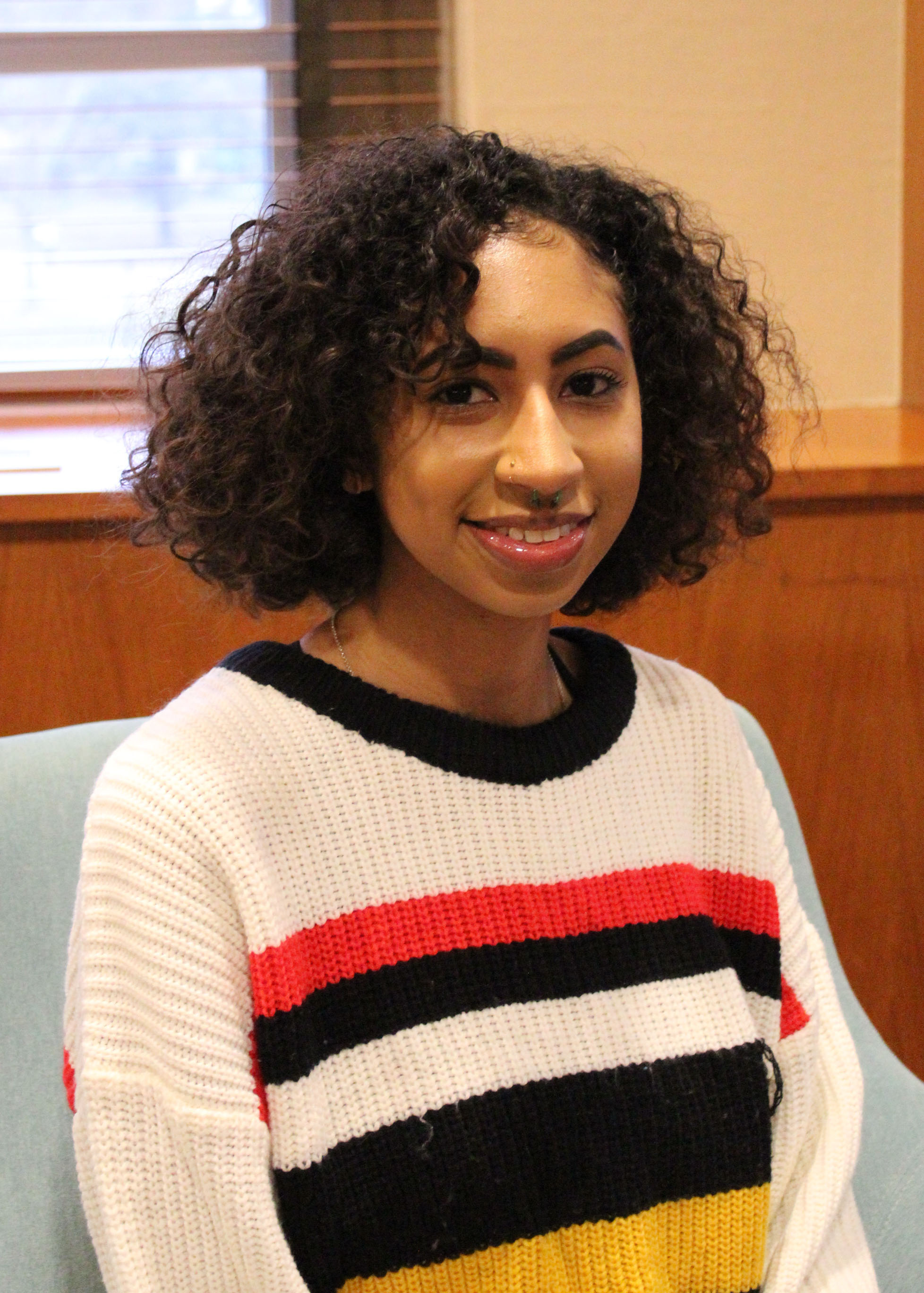 Natalia T. Langham is a junior studying biological anthropology at Ball State. She spent her last summer in Nicaragua as part of the 2017 Medical Brigade, where volunteers had the opportunity to take vitals and patient history, assist pharmacists, and shadow licensed doctors. Her devotion to service has also crossed over to college life through her membership in Alpha Phi Omega, a co-ed service fraternity.
Natalia T. Langham is a junior studying biological anthropology at Ball State. She spent her last summer in Nicaragua as part of the 2017 Medical Brigade, where volunteers had the opportunity to take vitals and patient history, assist pharmacists, and shadow licensed doctors. Her devotion to service has also crossed over to college life through her membership in Alpha Phi Omega, a co-ed service fraternity.
My father is black and my mother is an immigrant from Mexico. Her entire childhood, she moved back and forth between the states and Mexico before permanently moving here when she was an adult. I identify my heritage as being Afro-Latina.
Knowing my heritage was important to me because it gave me an identity. Your heritage can encapsulate all of who you are into one subset of humanity. My ancestors shaped the culture that [I] and my family practice. My heritage binds me to the people I share it with whether or not I’m of blood relation. In Latinx culture, everyone is family, and that fact holds us together as one, regardless of the birthplace.
My father was born and raised in Chicago. He has never tried to trace his family lineage back to any starting point, so a majority of my learned heritage came from my mother’s side of the family. I have never been to her homeland of Mexico. Mi familia es mi país was something I always told myself. My heritage looks like my abuela cooking arroz, frijoles, and carnitas while bachata music is playing over her old record player. My primas and I dancing around her apartment while our moms sit at the kitchen table, and my tios sit on the porch drinking beers and laughing. The smell of warm tortillas taking over her entire home. Familia is the beginning and ending of all Mexican heritage.
Even though the U.S. is regarded as “the melting pot,” it still seems hard for other people to accept that you can be shared equally between two cultures. I’m just as proud of my blackness as I am my Latina roots. However, based on my physical appearance, American culture has tried to force me to identify as one or the other. Growing up in the States, I do feel as if I missed out on parts of my mother’s culture that I would have experienced living in Mexico. I often struggled to blend Latina, American, and black culture. I was too Spanish for the black kids, and even though I am of a lighter skin tone, I was still too black for the Latinx kids at my schools. It was even harder when the anti-blackness of many Latina communities became apparent to me. Merging my cultures into the woman I am today was no easy task, but my heritage was always rooted in my own family. Now, as a 20-year-old young woman, I can say I have found balance in the entirety of my heritage and culture as an Afro-Latina, and I love it.
I think it’s important to know where you come from. [But in the United States], it’s easy to abandon your heritage and culture. When moving here, it is expected that you should adopt “American” culture and become the ideal “American.” But what even is that? Keeping my family close to me and spending as much time with them as possible is how I keep my heritage thriving in my life.
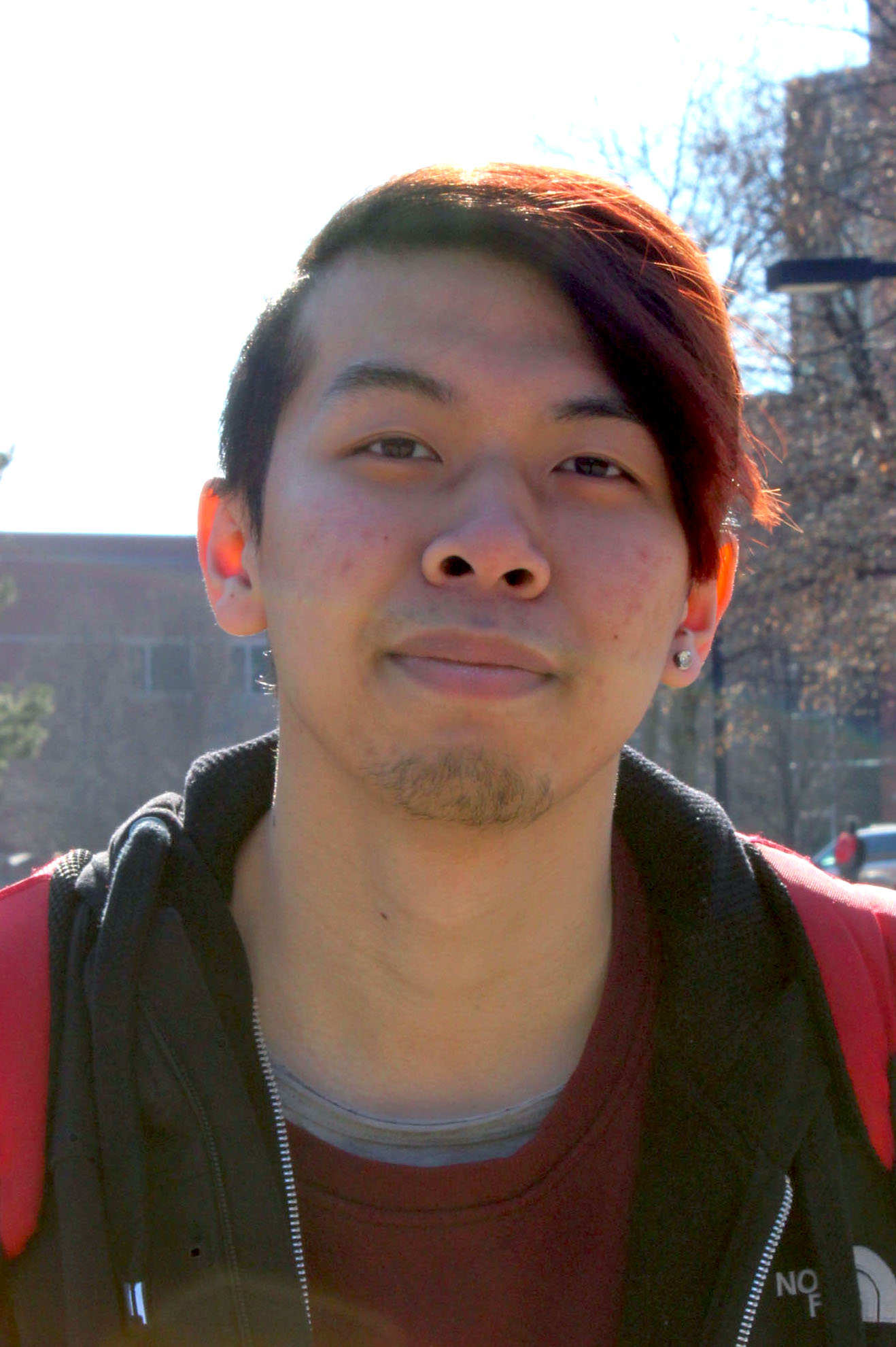 Huy Huynh is a senior at Ball State where he studies psychology. He plans to pursue his interest in mental health by counseling those with mental illnesses. Currently, he serves as the President of the Asian American Student Association.
Huy Huynh is a senior at Ball State where he studies psychology. He plans to pursue his interest in mental health by counseling those with mental illnesses. Currently, he serves as the President of the Asian American Student Association.
[My heritage] is kind of an Americanized version of a Vietnamese household because my parents tried to raise my siblings and I in a very traditional Vietnamese sense, but they definitely wanted us to have our own separate lives out of it because, you know, we live in America.
[My heritage] is my identity. Pretty much every identity I have is important to me. I am a male. I am an only son. My age is important. I am planning to become a mental health counselor, so that identity is also very important to me.
[the biggest area where the cultures mixed was] probably the food. Some days we’d have what my mom and dad cook—Vietnamese food. Some days we’d go get take-out from McDonalds or Noodles and company. We eat a lot [of] spring rolls, which are just noodles, whatever meat you’d like, and then vegetables. You wrap it up in this rice paper and then we eat that quite a lot. Maybe about once a week. Sometimes we eat noodles, but other times it’s normally rice with some chicken, beef, or pork. It’s spicy.
I also swear a lot in Vietnamese. A lot of the times, whenever I am talking to someone who is Vietnamese as well, I will mix my English into my Vietnamese because I am not actually quite fluent. So I’ll be talking Vietnamese to my mom and then say “the computer” and then start talking back in Vietnamese. There’s a language mix.
There’s been times when [the two cultures] have clashed just because some Vietnamese ideals are a lot different from American ideals. [For example,] my parents do not really believe in mental illness or mental health. Whenever I try to bring that up with them, they tell me I’m just thinking too much or I need to just get through it. But there are some cases where you can’t overcome your mental [illness] alone, and you actually do need to seek help for it. That’s what I’ve gathered from American ideals.
One of the biggest differences between [Vietnamese] culture and American culture is that [the Vietnamese are] definitely more collective.We rely on one another, and we put family [first]. American culture is individualistic. You are trying to be independent. I find myself struggling with that because sometimes I want to be independent, but family is just
so important to me that I sometimes can’t break away from my family.
[As far as heritage in a melting pot goes,] I think it depends on your definition of heritage. There are some heritages that kind of die out as new ones are created. So because of my Vietnamese-American blend of heritage, that is what my kids’ heritage will be as well. I think new ones are arising. I define heritage as how you were raised, not just by your parents, but the overarching family, who is around you.
People can keep their heritages alive by passing it on and sharing it with others. Being on an executive board is how I feel I’ve kept my heritage. It makes me remember and reflect on what I’ve been through. The way I share it is by having meetings that relate to my heritage in one way or another. We have had a meeting on AZN Pride, which was an Asian American movement for populations that tried to create their own identity within America. Although that movement isn’t as prominent today as it was when I was younger, teaching people about them is what keeps it going. It was a movement that was made to really keep the “Asian” alive within Asian Americans.
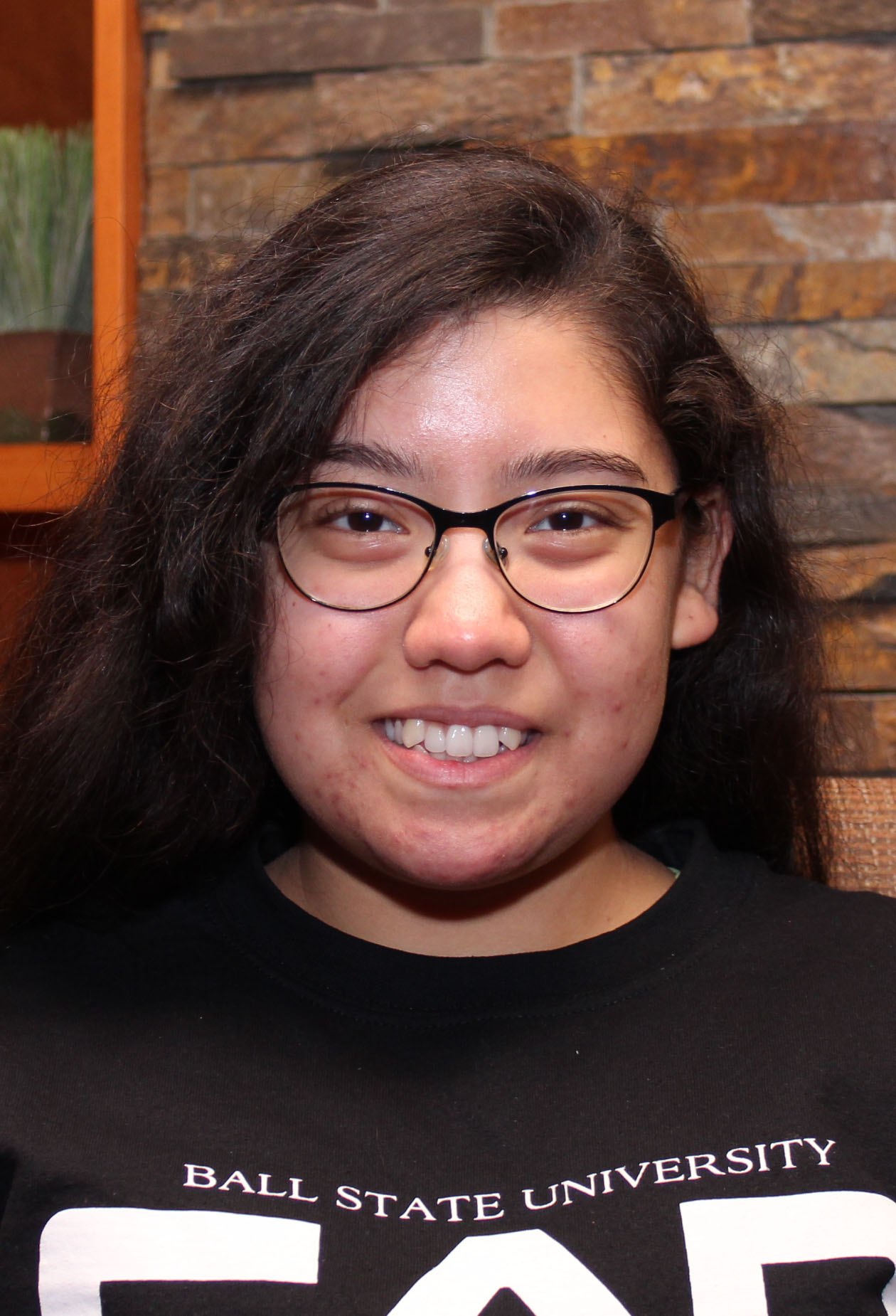 Ashley Caceres is a senior at Ball State University, where she majors in architecture. She is a first generation college student who comes from immigrant parents, which has resulted in her value of culture and drive to diversify the community. This year, she was elected to serve as the president of the Latinx Student Union.
Ashley Caceres is a senior at Ball State University, where she majors in architecture. She is a first generation college student who comes from immigrant parents, which has resulted in her value of culture and drive to diversify the community. This year, she was elected to serve as the president of the Latinx Student Union.
I grew up in a Mexican household, but I am half Mexican and half Salvadoran. Heritage is important to me because for me and many people of color, what our family passes down to us may be the only thing we can use to trace our roots. Historically, our heritage was taken away by slavery, massacre, and colonization. What our parents and their parents’ parents pass down to us is what we have left.
To me, my heritage is made up of powerful, independent women that have given so much of themselves. Every woman in my family comes from a background of abuse, separation, and immigration but also of strength and independence. I grew up with the expectancy that I would do great things and that I would accomplish what the other women in my family could not do. My heritage is also made up of respect for family. Most of my family does not live in the U.S., but it is still important to call and make time for family. We still pass down recipes through the phone, and if I am feeling sick, I know I can call my grandma in Mexico to get a traditional remedy.
A big difference [between American and Latin American culture] for me is the importance of success and school in my culture versus American culture. I grew up listening in school that I needed to go to school to succeed and to make money. At home, I grew up knowing that I needed to go to school to bring my family up with me. I knew that my degree meant so much more than my success. My degree was symbolic of my parents overcoming their struggles as immigrants. My education and success hold a lot of weight and pressure because my career and future is what will pay for my parent’s future.
Because my family has been in the United States for so long, merging two cultures has not been too difficult. I do not have the difficulty my parents did because I grew up with both cultures around me. I was privileged in that I did not struggle with my identity, heritage, and cultures. For my parents, it became a difficulty to try and keep their culture alive while also feeling forced to assimilate in the United States.
I personally do not believe in the idea of the melting pot.That idea erases the struggles and colonization of many cultures. It also erases the struggle many poor people, specifically of color, had in order to be a part of the U.S. The reason many of us are here in the United States is the enslavement and murder of indigenous people and black people. So, in order to consider who we are influenced by, it is important to understand from who we are benefiting and from whose struggles we have succeeded.
Heritage is so important to people who have had everything stripped away from them, and the idea of the melting pot dilutes the importance and significance of culture and heritage.
We keep our heritage alive by being vocal about our existence. For me, existing in a way that is unapologetic and unashamed about my differences is a way to keep my heritage alive. I also educate myself on my history. Because my parents were forced to assimilate to U.S. customs, their history and my roots were not as easy to pass down. Because I did not grow up in a Salvadoran household, I had to make the extra effort to learn about my Salvadoran roots. Because the American education system does not teach my history, I made that effort to learn Latin American history, specifically Mexican and Central American history.
Rafael Kodjoe came to the United States from Ghana to further his educational career last year. This is his second semester at Ball State University, where he is pursuing a graduate degree in linguistics and works as a tutor in the Intensive English Institute. There, he assists international students to develop proficiency in English, their non-native language.
I could be considered a black African because black African heritages have a lot in common. But you could narrow it down to the Ghanan heritage. I am from two families with two different cultural backgrounds.
They are the same if you look at it from the black heritage, and by black I mean black African, not African American. But they have their own characteristics. I didn’t make any conscious effort to merge the two. My parents also didn’t make a conscious effort to cultivate their heritages in me. It’s an unconscious or subconscious process. I have difficulty identifying with a particular heritage in Ghana, but looking at it in the general scope, I very much identify with the black African heritage.
I am proud of it because that is me, that is who I am, that is my identity. So long as it is me and so long as it has made me who I am, it is going to be a part of me for the rest of my life. I think I must appreciate it or else I will be nonexistent.
I personally can’t envision an exciting and global atmosphere in which all heritages are the same. It would be boring. So long as we have these differences, as long
as they are going to be respected, I think it gives us a lot to learn about human beings, the personalities, the backgrounds from various parts of the world.
I look at Americans and their way of life, and I ask myself, what is American and what is not American? Some will say America is Christian, and some will make claims against that. Some will say America is liberal, and some will make very strong claims against that.
When I see America, I see diversity. It would extremely difficult to say that America has one heritage. Prior to coming here, I thought it to be very liberal, but coming here, I must say my perception has changed a little. It might not be as liberal as people think it is. There is a lot of respect for other people’s heritages, but it is a cautious one which causes a lot of tension in the world. This is why I think it is freer to live back in Ghana. But that does not take away my perception of America being diverse. No particular heritage identifies with being American today. Everyone lives their own life in America.
In the metaphor of the American society as a melting pot, it could go one of two ways; either one’s heritage is reinforced by the existence of similar heritages around him, or it is “corrupted” through contact with other cultures and heritages. Any of the two occurs depending on the resilience of a person’s personality, the pride inherent in the person’s heritage, or the pressure that exists in the melting pot.
I, for instance, try as much as I can to maintain contact with the cohorts of my heritage. That surely keeps my heritage relevant to my life. Technology has made it easy and inexpensive to maintain the relationship I have always had with my family back home. So long as these relationships are guarded, my heritage can only persist, despite my existence in a context of diverse heritage.


